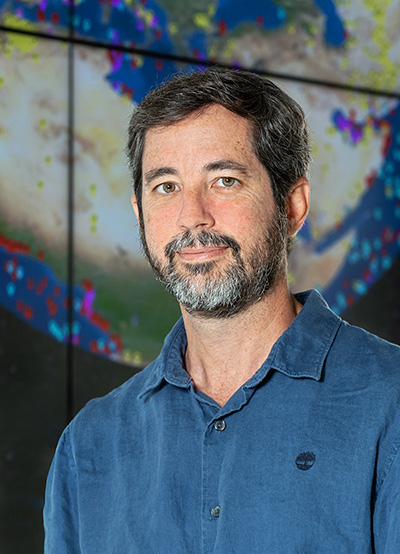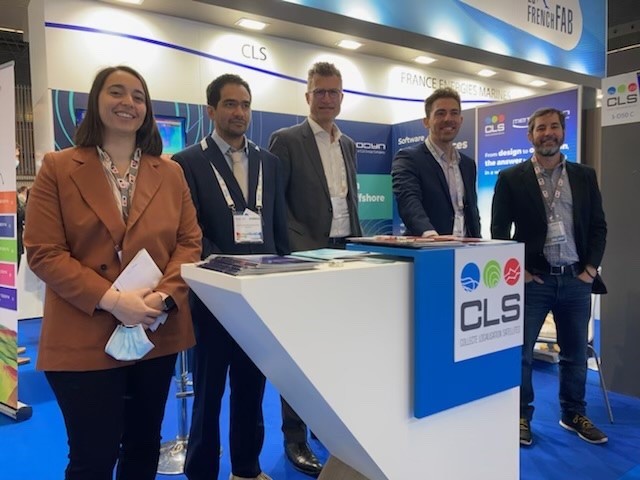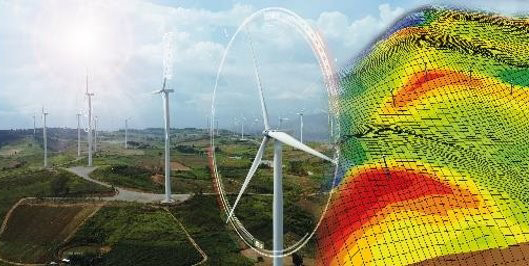It has made a lot of noise in the press. A symbol, last straight line for this offshore wind farm which will count 80 wind turbines and must be put in service at the end of 2022.
This symbolic milestone—the first of 80 turbines making up the offshore wind farm that is set to start operating at the end of this year—has attracted a lot of media attention. With a total power of 480 megawatts (MW), it also marks a renewable energy response to the challenges of climate change and energy sovereignty.
Our editorial team was curious to find out more, so we talked to Mauricio Fragoso, the head of our Energies & Infrastructures Business Unit.

How does CLS fit into this dynamic?
Mauricio Fragoso: Thank you for asking, because it gives me the opportunity to recall the role of CLS and its network of subsidiaries in the energy transition. Since 2008, we have focused a branch of our business on marine renewable energies, drawing on our 30 years of experience in offshore projects.
Today, SARWind offers a unique and comprehensive solution that is a winning combo of satellite SAR (Synthetic Aperture Radar) measurements, in-situ measurements and an atmospheric model for calculating offshore wind at turbine hub height.
Combined with machine learning, we can guarantee wind characterization at very high resolution with 17 years of satellite measurements, and excellent representation of complex winds in coastal areas to finely assess wind potential.
What makes this proposal unique?
Mauricio Fragoso: As we know, wind characterization for a wind farm project is currently based on two pillars: atmospheric modeling and in-situ measurements. CLS has added SAR satellite data to bring more precision and detail over the entire area of the wind farm.

How will your solution benefit users?

Mauricio Fragoso: The CLS Group’s solution provides key elements for calculating wind power.
A wind farm is a major project in every respect, and so obviously from an economic point of view. With more precise wind power ratings, we can reassure investors about the wind farm’s profitability.
Another essential element is “derisking”. We help to de-risk the wind farm through our studies and ultimately determine a competitive price per kW/hour.
I would like to add that the SARWind solution, which we can provide anywhere in the world, can be considered in all phases of a project: upstream, during construction and throughout a wind farm’s operational lifetime.
Where does Meteodyn, your new renewable energies subsidiary, come into the picture?

Mauricio Fragoso: The fact is that we have very complementary businesses with Meteodyn. This naturally led us to team together. We bought Meteodyn last year, which enabled us to leverage the complementarity of our solutions for both offshore and onshore wind energy.
Meteodyn has a strong presence in the onshore wind market, and CLS has a strong focus on the oceans, which has always been our DNA.
Together, we bridge the gap between land and sea and offer solutions for both onshore and offshore. In addition, the strength of the CLS network with our 35 sites around the world supports and accompanies Meteodyn’s expansion into new geographical markets.
More info about Meteodyn’s acquisition by CLS
With Frank Lancelot, Meteodyn’s CEO, we believe very strongly in this combination of skills and in our turnkey solution for wind energy professionals. Not to mention that Meteodyn is the world leader in CFD software for numerical wind simulation.

The Meteodyn Universe software suite in particular is a strong asset. From the design to the operation of wind farms, it’s a market benchmark.
Discover the Meteodyn Universe software suite
To conclude, what would be the final word?
Mauricio Fragoso: The world is changing, past balances are shifting, and the situation is forcing us to adopt new rules and behaviors, particularly in the face of global warming. One of the solutions, as we know, is a well-thought-out energy mix that includes a growing share of renewable energies.
This is where we come in, by guaranteeing that calculations are right, derisking investment as far as possible and ensuring a competitive price for wind energy.



